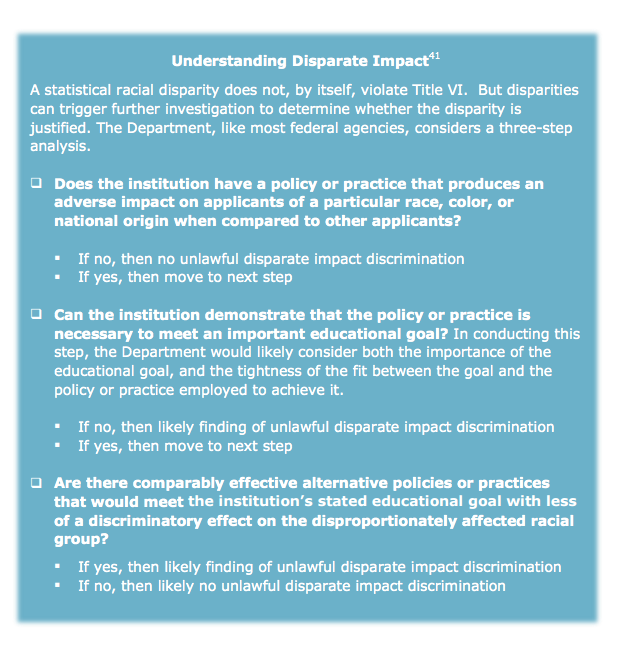
The Department of Education is warning college administrators that asking about the criminal backgrounds of prospective applicants may violate the civil rights of black Americans.
According to the “Beyond the Box: Increasing Access to Higher Education for Justice-Involved Individuals” guide released on Monday, 66 percent of postsecondary schools ask for criminal justice information [CJI] for all prospective students.
At the same time, the guide claims, “More often than not, the admissions process is one of the many barriers that justice-involved people [criminals] face, particularly people of color, who are disproportionately represented in our nation’s justice system.”
It continues, “Racial and ethnic disparities exist in the adult criminal justice system as well. Of those behind bars in state and federal institutions in 2011, about 60 percent were minorities. Black men born since the late 1960s are more likely to have served time in prison than to have completed a four-year college degree.”
The guide later says, “While the reasons for collecting CJI vary by institution — including concerns about safety and occupational licensing barriers that formerly incarcerated students might face upon graduation — there is consistency in the extent to which disparities in the justice system disproportionately impact individuals of color, especially black males, and, in turn, disproportionately require students of color to respond to questions about CJI."
Under the “Legal Considerations” section of the guide, the Department of Education writes, “It is important for colleges and universities to be aware of relevant legal standards governing questions they ask on admissions applications and in adopting student selection criteria they use in admissions processes.”
The department claims, according to Title VI of the Civil Rights Act of 1964, public and private postsecondary schools that receive federal assistance “must not implement policies that, while neutral on their face, have the unjustified effect of discriminating against individuals on the basis of race, color, or national origin (often referred to as disparate impact).”
According to the Department of Education, the Equal Employment Opportunity Commission, the Department of Labor, and the Department of Housing and Urban Development all claim asking for criminal background history may violate civil rights because of its “disparate impact” on black Americans.
“Although these federal guidances address the use of CJI in other contexts, they may be useful by reference in determining whether to include, and if so, how to design any CJI-related questions for an institution’s admissions application,” the Department of Education notes.
To explain what can be viewed as a “disparate impact,” the department provides a guide with leading questions to suggest asking for criminal background history is “unlawful”:

(Image source: U.S. Department of Education)
The Department of Education notes, if criminal history must be asked of an applicant (for instance, if a particular career-oriented academic program would bar someone convicted of rape from becoming licensed), “colleges and universities should delay the request for or consideration of CJI collected until after an admission decision has been made to avoid a chilling effect on potential applicants whose CJI may ultimately be deemed irrelevant by the institution.”
Other suggestions made by the department include “[e]nsuring that the questions [about criminal background] are narrowly focused, avoiding overly broad requests about criminal history” (such as asking if an applicant has specifically been convicted of sexual assault or rape) and “[g]iving all prospective students the opportunity to explain criminal justice involvement and preparedness for postsecondary study.”
